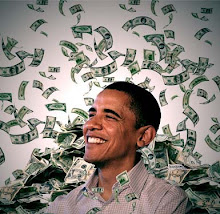
Alla vigilia della risoluzione Onu contro la violazione dei diritti umani in iran
La denuncia di Shirin Ebadi:
«Mi hanno sequestrato il Nobel»
La dissidente all'estero da mesi: «Dicono che devo pagare delle tasse. Sono sotto costante minaccia, ma tornerò»
NEW YORK - «Ho invitato il segretario generale dell’Onu a visitare l’Iran per vedere coi propri occhi il tragico deterioramento delle libertà nel mio Paese». Alla vigilia della risoluzione contro le violazioni dei diritti umani in Iran che l’Assemblea generale Onu si appresta a votare in settimana, Shirin Ebadi abbandona i toni soft per attaccare il regime «che uccide i minorenni, perseguita donne e minoranze religiose e mette all’indice la libertà di parola».
Lei manca dal suo Paese dalle contestatissime elezioni dello scorso giugno.
«Vivo in uno stato di esilio effettivo», spiega l’attivista 62enne, premio Nobel per la Pace nel 2003, in un incontro col Corriere all’Hotel Tudor, a due passi dall’Onu. «Mi hanno confiscato l’appartamento, la pensione che ricevo dal ministero della Giustizia e il conto in banca mio e dei miei famigliari, ormai sotto costante minaccia. E se non bastasse mi hanno sequestrato tutti i premi, incluso il Nobel e la Legion d’Onore».
Ha paura di tornare in Iran?
«Nulla mi spaventa più, anche se minacciano di arrestarmi per evasione fiscale al mio rientro. Sostengono che debbo al governo 410 mila dollari in tasse arretrate per il Nobel: una fandonia visto che la legge fiscale iraniana stabilisce che i premi siano esentasse. Se trattano così una persona ad alto profilo come me, mi chiedo come si comportano di nascosto con uno studente o cittadino qualunque».
Quando ha intenzione di rimpatriare?
«Tornerò, forse accompagnata da Ban Ki-moon, quando avrò finito il mio lavoro all’estero e sarò più utile nel mio Paese. Sono stati i miei colleghi di Teheran a chiedermi di restare: 'Adesso ci sei più utile fuori', hanno detto. Uno dei miei compiti è perorare la risoluzione Onu che i partner commerciali iraniani vorrebbero bloccare in quanto 'politicizzata'. Un’accusa falsa come dimostra l’ultimo rapporto di Ban Ki-moon: un uomo che non si può certo accusare di parzialità».
A cosa serve una risoluzione puramente simbolica?
«A mettere in guardia il governo di Teheran e a dare al popolo che soffre la conferma che l’Onu è con lui. Bisogna riportare la calma nel Paese e io sento il dovere di intervenire per fermare l’escalation di violenza».
Teme che i media internazionali abbassino la guardia?
«Sì. Migliaia di prigionieri languono in carcere, torturati e stuprati. Nessuno conosce il vero numero delle vittime».
La commissione Onu per i diritti umani a Ginevra fa la sua parte?
«Cerca di farla ma la composizione del consiglio è tale da legargli le mani. Vorrei spingerlo a fare di più perché, lo ripeto, la violazione dei diritti umani nel mio Paese è diventata sistematica e diffusissima. Se la Comunità internazionale tace, il popolo sarà dimenticato ed è proprio ciò che vuole il governo».
L’amministrazione Obama sta facendo abbastanza?
«Non ho ancora incontrato il presidente Obama né i membri della sua amministrazione ma la mia posizione è ben chiara: nel dialogo con l’Iran non si può parlare solo di nucleare, ignorando la questione ben più pressante dei diritti umani. Le due sono interdipendenti».
È ottimista sulla ripresa del dialogo tra Washington e Teheran?
«Obama ha inaugurato un nuovo corso rispetto all’ostile sbarramento di Bush, ma bisogna aspettare per vedere quali decisioni in concreto verranno prese».
È ancora in contatto con i suoi famigliari in Iran?
«Parlo tutti i giorni con mio marito e con i miei colleghi del Centro per la difesa dei diritti umani. No, non sono in contatto con gli esuli iraniani in America e nel resto del mondo: non sono un leader politico né un leader del movimento d’opposizione né loro mi riconoscono come tale. Sono solo un difensore dei diritti umani, un semplice avvocato che difende pro bono i perseguitati politici».
Quando tornerà in Iran avrà molto da fare.
«Ne sono certa e mi preparo già ad accettare tutti i casi che mi capiteranno, coadiuvata da una ventina di illustri colleghi, la maggior parte delle quali donne».
È vero che la rivoluzione estiva è stata guidata dalle donne?
«Basta andare su Youtube per capirlo. Non a caso Neda ne è diventata il simbolo. Tantissime donne sono dietro le sbarre mentre ogni sabato sera il comitato delle Madri in Lutto dell’Iran si riunisce in un parco. Protestano in silenzio, vestite di nero e con le foto dei figli imprigionati o uccisi. Molte città, tra cui Firenze e Venezia, hanno creato comitati di solidarietà analoghi e io mi appello a tutte le donne del mondo perché facciano lo stesso».




















































